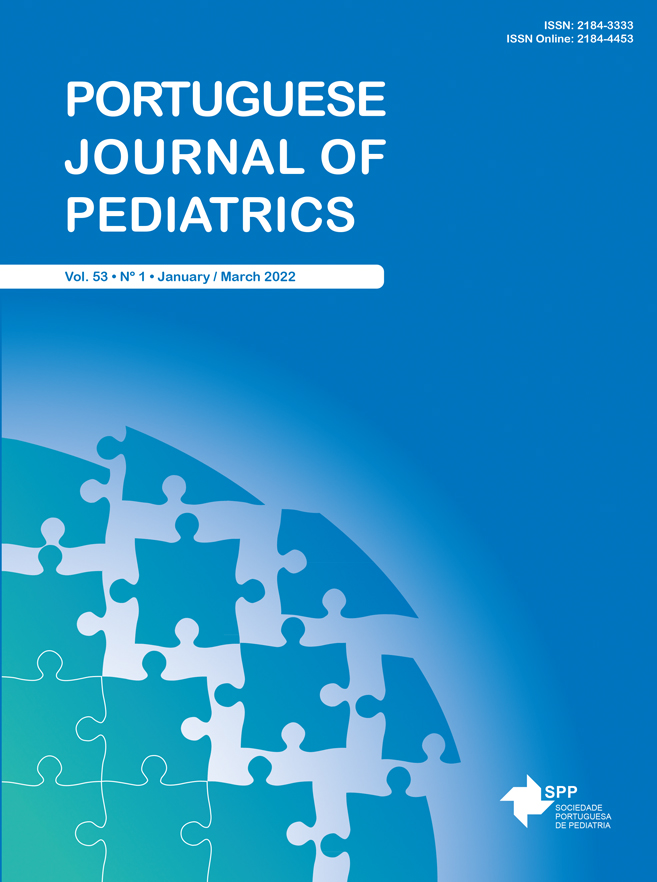Nutritional Risk Screening in Azorean Hospitalized Children: A Portuguese Validation Study
DOI:
https://doi.org/10.25754/pjp.2022.19956Abstract
Introduction: Malnutrition risk screening identifies patients who clinically benefit from a nutrition support. STRONGKids is a malnutrition-screening tool developed to identify the malnutrition risk in paediatric ages. According to the Portuguese law, screening for malnutrition is mandatory at admission in all National Health Service Hospitals.20,21 and in paediatric ages STRONGKids is the tool that should be used. Although there are translations of STRONGKids into Portuguese language, to our knowledge, there aren’t any published studies that validate this tool for the Portuguese population. The aim of this study is to confirm the concurrent and prospective validity of STRONGKids in the hospitalized paediatric children, that live in the Portuguese Azores islands.
Methodology: This cross-sectional study allowed, for a period of 5 months, to collect anthropometric measures, as well as to apply STRONGKids tool, in 299 hospitalized children at the paediatric ward, with ages between one and 211 months.
Results: STRONGKids scores correlated negatively with weight for height Z-score of the patients (rS= -0,40, p<0,001; odds ratio [OR] 0,63; 95% confidence interval [95%CI] 0,50-0,79, p<0,001) and also with body mass index for age Z-score (rS= -0,38, p<0,001; OR 0,60; 95%CI 0,49-0,73, p<0,001). Both variables had a sensitivity and negative predictive value of respectively 77,2% and 95,8%, 62,1% and 98,7% to identify acutely undernourished children. STRONGKids also correlated positively, although weakly, with length of stay (rS= 0,18, p=0,002; OR 2,11; 95%CI 1,31-3,40, p<0,001). The sensitivity and negative predictive value to predict a length of stay of 4 days were respectively 38,7% and 67,8%.
Conclusion: This study validates the STRONGKids as a tool to identify Azorean hospitalized children that are at nutritional risk. However, future studies should validate this tool for the entire Portuguese population.
Key-Words: Child, Hospitalized, Malnutrition, Mass Screening, Sensitivity and Specificity.
Downloads
Downloads
Published
Issue
Section
License

This work is licensed under a Creative Commons Attribution-NonCommercial-NoDerivatives 4.0 International License.









